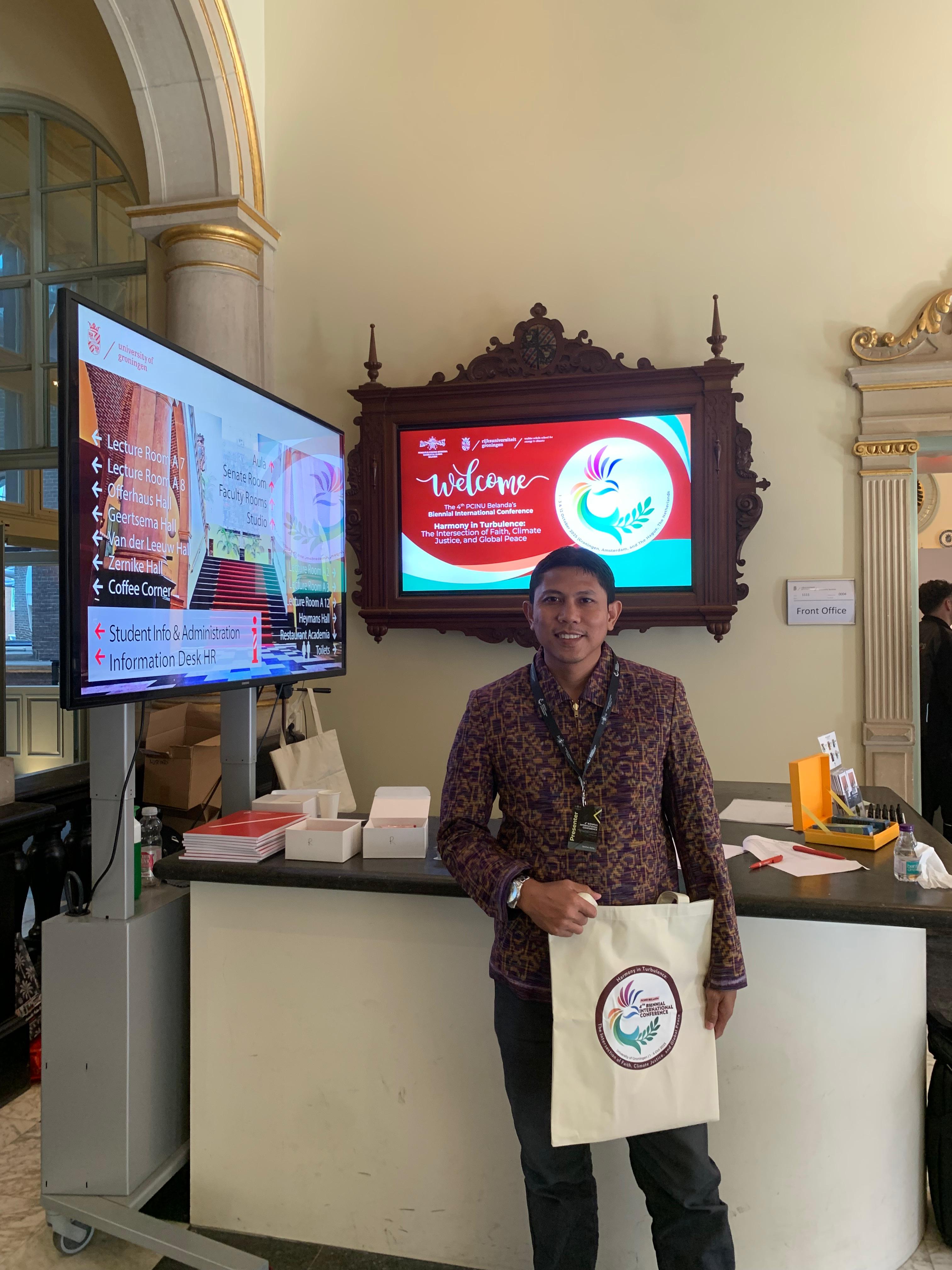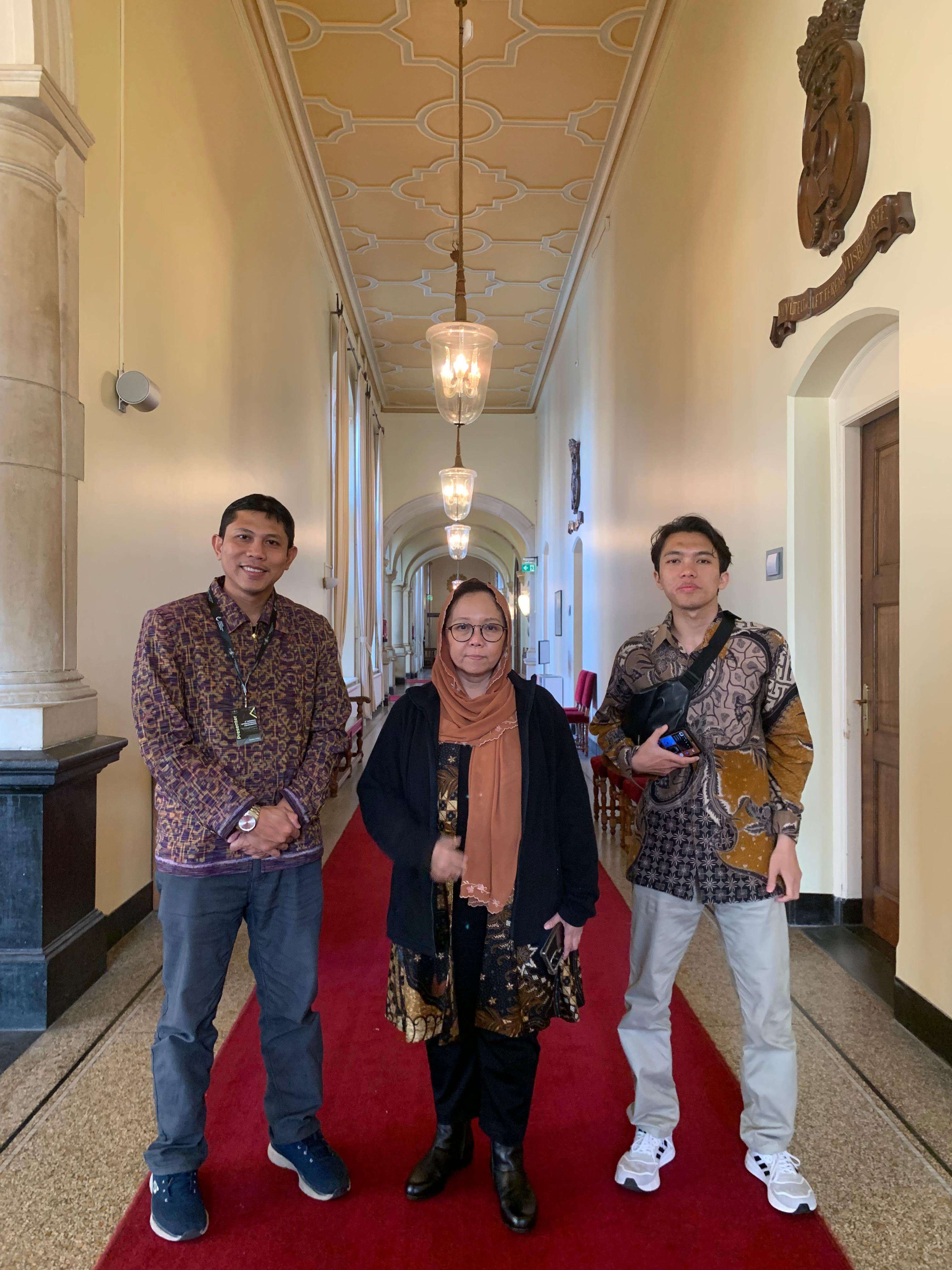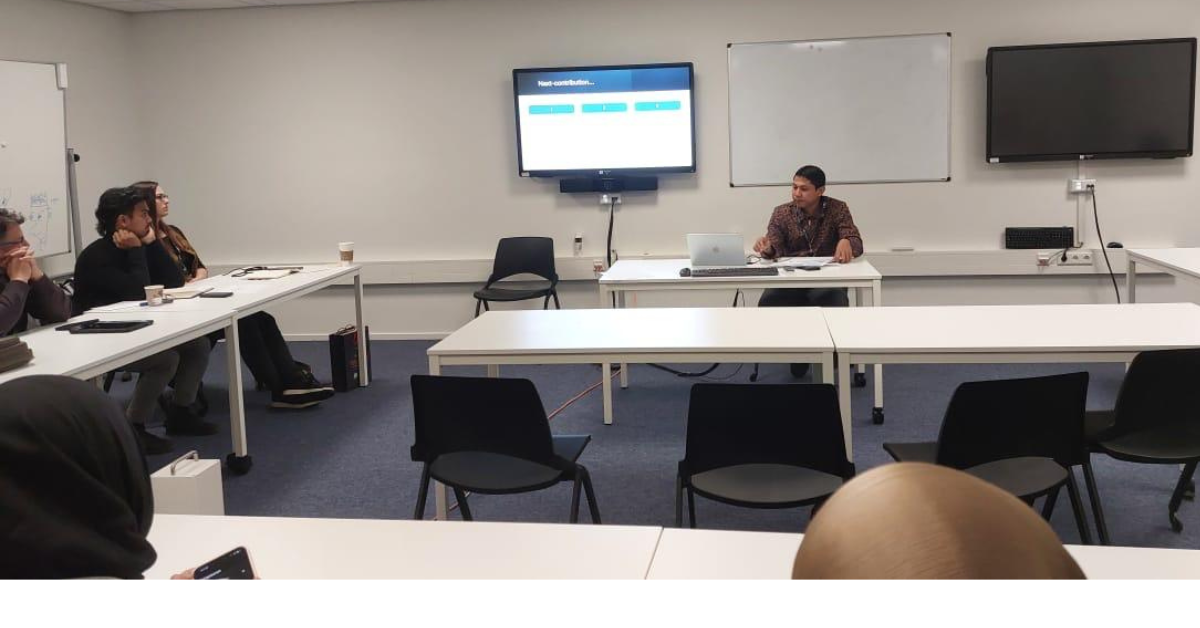Lecturer of Qur’anic Studies and Tafsir at UIN Jakarta Presents the Idea of Qur’anic-Based Humanitarian Protection at an International Conference in the Netherlands

Jakarta, FU Online News — The Faculty of Ushuluddin at UIN Syarif Hidayatullah Jakarta once again records an academic achievement on the international stage. A lecturer in Qur’anic Studies and Tafsir, Jauhar Azizy, was one of the speakers at the international conference entitled “Harmony in Turbulence: The Intersection of Faith, Climate Justice, and Global Peace”, organized by the Nahdlatul Ulama Netherlands branch (PCINU) at the University of Groningen, Netherlands.
At this prestigious forum, Jauhar Azizy presented a paper titled “Humanitarian Protection in Refugee Crises and Forced Migration: An Intertextual Reading of the Interpretation of Q.S. Al-Nisa[4]”, which discusses humanitarian protection from the Qur’anic perspective, especially in the context of refugee crises and forced migration.
This international conference took place on 1–2 October 2025, in collaboration with the Wubbo Ockels School for Energy and Climate, Netherlands, and featured academics, researchers, and interfaith leaders from various countries concerned with issues of climate justice and global peace.
In his presentation, Jauhar Azizy affirmed that humanistic values in Islam are not merely spiritual, but also become a social ethical foundation capable of addressing the challenges of the modern world.
“Humanitarian crises, climate change, and global conflicts can in fact be approached with the Qur’anic perspective that emphasizes balance (tawazun) and universal compassion (rahmah),” he stated before conference participants from various countries.
Furthermore, he explained that in the context of contemporary exegesis, the Qur’an may be read as a living text that guides humanity to preserve the earth’s sustainability as well as human dignity.
“Protection of nature and humanity are two sides of the same theological consciousness,” he asserted, while linking Qur’anic verses on justice, amanah, and ecological responsibility.
During the discussion session, participants highlighted the relevance of his ideas to public policy and international diplomacy. In response, Jauhar Azizy emphasized the importance of implementing Qur’anic values into real cross-sector work—whether in education, politics, or socio-economic domains.
“The message of Islam about humanitarian protection should not stop at the discourse level, but be manifested in policies that promote societal welfare,” he said.
He also outlined four forms of appliable solutions from Qur’anic values in a global context: research and policy ethics, social and ecological justice, accountability in data and aid management, and ethics of resource distribution or the balance between production and consumption.
In addition to presenting the paper, Jauhar Azizy also participated in a panel discussion among academics. In that session, he emphasized the importance of building interfaith dialogue based on empathy and moral responsibility toward the earth and vulnerable groups.
“Interfaith dialogue must generate joint action, not merely symbolic tolerance. The Qur’anic context must be realized in efforts to resolve social problems,” he said, which was met with applause from conference participants.
The Harmony in Turbulence conference concluded with a joint call to strengthen global collaboration in preserving peace and the earth’s sustainability. The ideas brought by the lecturer of Qur’anic Studies and Tafsir at UIN Jakarta emphasize that the Qur’an holds great potential as a source of global ethics that guides humanity to live together peacefully, justly, and compassionate toward fellow beings and the environment.
This conference also welcomed several international figures and academics, including Alissa Wahid, Timothy Winter, Frans Wijsen, Zainal A. Bagir, Erin Wilson from Religion and Green Theology, and Prajal Pradhan from the Wubbo Ockels School for Energy & Climate Groningen, along with several other speakers from universities in Europe and Indonesia.
The series of conference activities ran from 28 September to 3 October 2025, encompassing Indonesian Muslim Festival Day, a major pengajian at Al-Hikmah Mosque The Hague, the International Conference, discussions and the launching of the book “Travelling Home: Essays on Islam in Europe”, the PCINU Summit, as well as Dutch–Indonesian interfaith dialogue.
The Faculty of Ushuluddin at UIN Syarif Hidayatullah Jakarta expresses appreciation and pride for its lecturers’ contributions in international academic forums that strengthen the reputation of Islamic scholarship at the global level. This participation is hoped to inspire the academic community to continue developing research based on Qur’anic values relevant to humanitarian and global sustainability issues.


